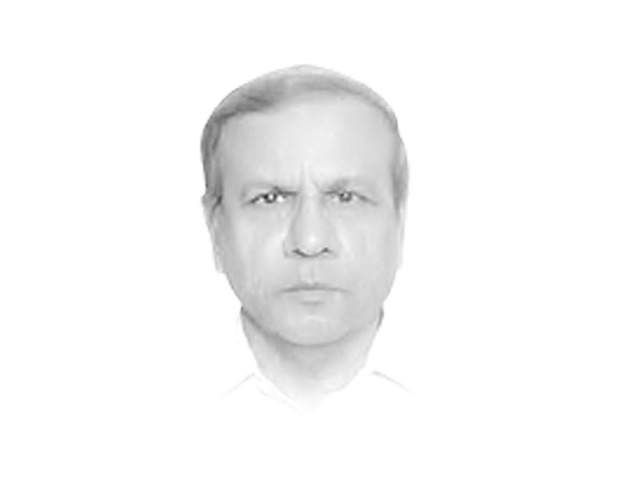Leveraging a Kashmir solution
General Raheel Sharif’s visit to the US is very significant for Pakistan’s foreign policy and security

The writer is an economist and a former adviser to the Sindh chief minister on planning and development
Pakistan has acquired a rare element of leverage by virtue of advances in nuclear weaponry, which is understood to have provided it a tactical edge over India in the event of a war, howsoever destructive such a development could be for both countries. Nevertheless, the situation provides Pakistan with an opportunity to derive advantage through skillful diplomacy. If the US desires to have Pakistan cap its nuclear programme, then Pakistan can agree to oblige; but only subject to the condition that the US and other Western powers take on an effective role in resolving the Kashmir dispute on terms that will be considered fair. Needless to say, Pakistan’s actions on the nuclear front have to follow, not precede, movement on the Kashmir front.
Of course, India will resist any such initiative, as it has for half a century. However, two factors are propitious for persuading India to acquiesce to international mediation. One is that India’s political elite have a one-point agenda: rapid economic development; for which the country is aggressively seeking Western investment and access to markets. Should the US and Western powers agree to midwife a Kashmir solution, they will command powerful leverage in terms of facilitating or inhibiting Western investment in India.
The other favourable factor, ironically, is the presence of a hardline nationalist government in New Delhi. Pakistan’s political elite and media view the current Indian government as extremist and zealously anti-Muslim and anti-Pakistan — and correctly so. That, however, does not mean that Pakistan cannot work with the Modi government. Rather, this is the opportune moment. The history of conflict-resolution in the world shows that it is usually the uncompromising, hardline leaders, as opposed to moderate open-to-compromise leaders, who have been able to make the necessary concessions — without fear of being charged as sell-outs — to arrive at an agreement.
In Pakistan, a right-wing Punjab-centred party, the PML-N, is in power and co-habiting with the military. This is a combination that is ideally placed to make the necessary concessions to arrive at a settlement of the Kashmir dispute. After all, it was General Musharraf, a military ruler, who was able to depart from Pakistan’s stated position on Kashmir and arrive at a draft agreement that was sabotaged by hardliners in the Vajpayee government. Two factors did not allow the draft agreement to come to fruition. One, Atal Bihari Vajpayee was perceived as a moderate, did not command the political ‘firepower’ to be able to carry the compromises through, and was open to attack by hardliners, including from the Indian military. And two, there was no third-party pressure to temper the hardline agenda. Today, the Indian government is led by a hardliner. The necessary condition exists; however, the sufficient condition — third-party pressure to temper the hardline agenda — is still missing.
The US played a critical mediatory role in facilitating a negotiated end of the Irish civil war. And President Obama has shown remarkable statesmanship and leadership in making peace with Iran and Cuba. Similar statesmanship and leadership can help solve the Kashmir dispute. It is time to end the circus of so-called ‘confidence-building measures’. The US and the West need to lean on India to persuade it to come to an accommodation with Pakistan on the core issue of Kashmir. Pakistan’s abject dependence on foreign exchange injections from the US-controlled international financial system also renders it vulnerable to ‘persuasion’. And the situation is ripe for Pakistan to reach out to India through back channels. It needs to be kept in mind that tactical advantages are never permanent and Pakistan should make hay while the sun shines. Of course, Pakistan’s efforts will come to naught without an effective US and Western role. With the Kashmir dispute resolved, the inner urge in Pakistan and India to arm or to hold on to nuclear weaponry is likely to abate. With the resolution of the dispute, the right-wing, fundamentalist ideology is also certain to be starved of hate-tainted oxygen.
Published in The Express Tribune, November 12th, 2015.
Like Opinion & Editorial on Facebook, follow @ETOpEd on Twitter to receive all updates on all our daily pieces.















COMMENTS
Comments are moderated and generally will be posted if they are on-topic and not abusive.
For more information, please see our Comments FAQ